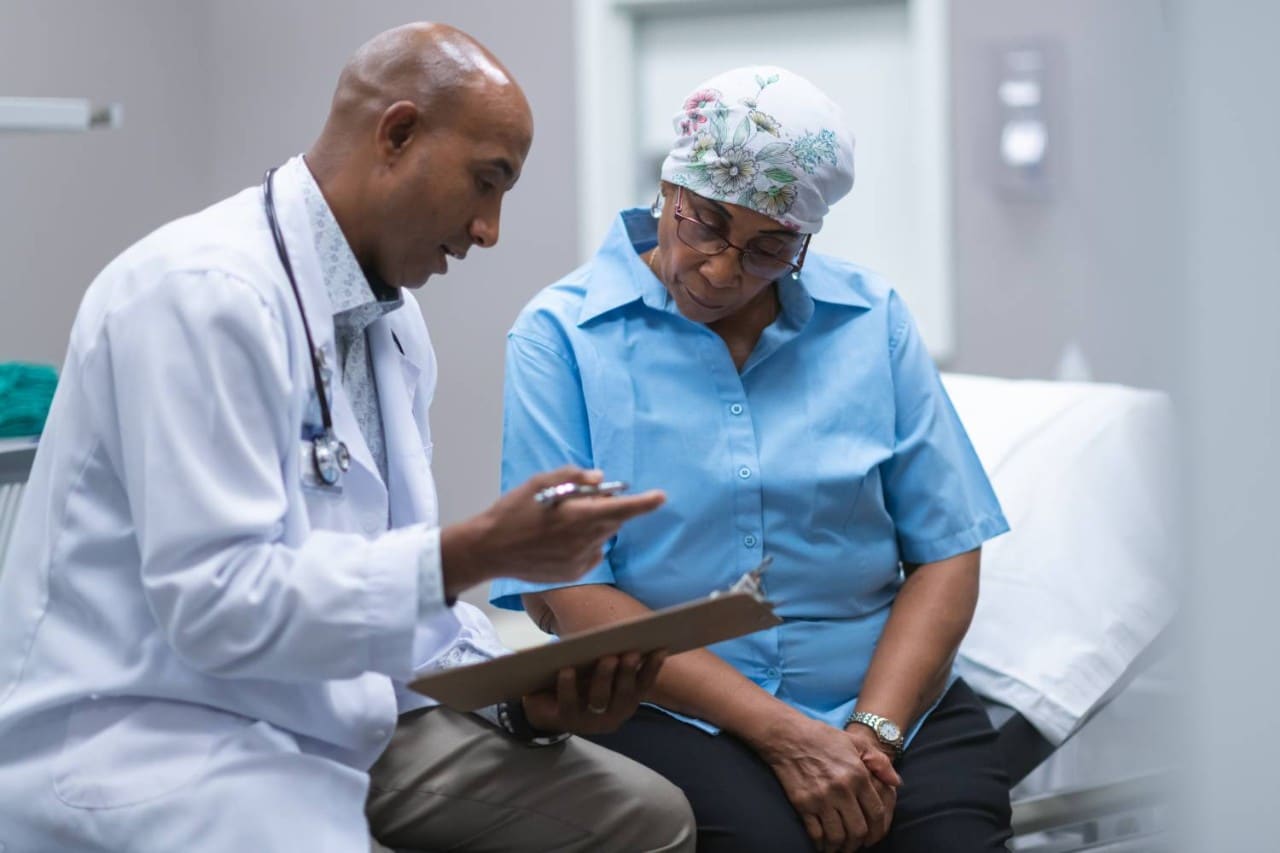How researchers are fighting cancer with analytics
By Alison Bolen, SAS Insights Editor
Most of us can name at least one friend or relative who is a cancer survivor. And there are hundreds of thousands of people like our loved ones who’ve beaten cancer today but would not have survived it a few decades ago.
Adults diagnosed with cancer in 1975 had a 50-50 chance of surviving after just five years. Today, the five-year relative survival rate across all types of cancers is closer to 70 percent. In that same time frame, the five-year survival rate for childhood cancer patients has improved from 62 percent to 81 percent.1
And these staggering advances would not have happened without analytics:
- Analytics has helped scientists better understand the genetic and social determinants that contribute to the incidence of cancer.
- Analytics has helped doctors predict cancer risk earlier so that patients can be treated sooner.
- Analytics, including computer vision models, help clinicians evaluate the efficacy of treatment during cancer care.
- Analytics has helped scientists discover new therapies for many types of cancer.
Let’s explore some of those advances in more detail.
Analytics, particularly advancements in artificial intelligence, are essential in the large-scale process of sequencing the human genome. Studies of our DNA continue to provide clues for early diagnosis and detection of disease in cancer patients. Plus, genetic analysis is now being used to analyze your risk of getting cancer in the future.
AI will help us save lives . . . I'm absolutely sure about that. Dr. Geert Kazemier Professor of Surgery and Director of Surgical Oncology Amsterdam UMC
Personalized medicine – also a result of genomic sequencing – promises to provide treatment regimens designed specifically for an individual’s unique genetic makeup, resulting in fewer side effects and improving outcomes.
Increased focus on collecting social determinants of health data and “-omics” data is expanding the research universe and accelerating understanding of cancer biology. One organization that is already adopting this approach is the Healthy Nevada Project. By integrating omics data with epidemiological data, cancer researchers can associate genetic alterations with environmental exposures and specific clinical phenotypes to pinpoint tumor response and optimize patient care pathways.
These advancements in the fight against cancer would not be possible without using AI-powered analytics on large complex data, usually in a cloud-based environment.
Data sharing is reaping huge rewards in the fight against cancer too. At the individual level, health tracker apps on our mobile devices are sending data to health care providers to improve patient care and provide early-warning signs in at-risk patients. Pharmaceutical companies that collect clinical data about a drug’s performance and insurers that study the outcomes of various treatment outcomes are finding new ways to safely share data. With these combined data sources from hundreds of studies and dozens of companies, researchers are finding deeper insights than ever before.
Decades ago, interorganizational data sharing was an unfamiliar and untrusted concept. But today, the benefits are undeniable. Researchers are getting answers faster, reducing duplication of effort and improving efficiencies. Plus, rare cancer types and relatively neglected areas are easier to study with large amounts of detailed data.
Shared health outcome data from many similar patients is also used by cancer treatment centers. Health care providers can use the sizeable data set to gain deeper insight into the effects of various treatment options, meaning your loved ones are more likely to get the treatment that is right for them.
Thanks to analytics, survival rates are higher, treatments are more personalized and cancer research continues to expand.
1 National Institutes of Health Fact Sheet, Cancer.

Related Content
- Read more about health care analytics and life science analytics software.
Get More Insights
Join us for The Health Pulse podcast series as we explore fresh perspectives on digital transformation in health care and life sciences.
Click here to watch Greg Horne talk with Dr. Robert Winn of the Massey Cancer center about eradicating cancer and the disparities in access to quality health care..
